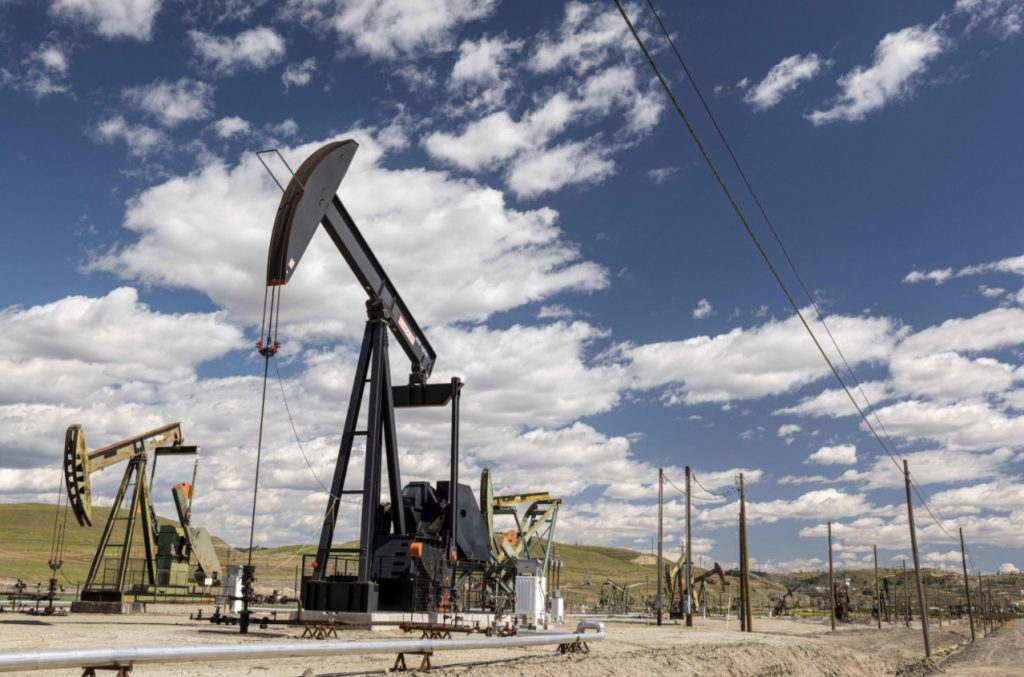
Oil prices jumped in afternoon trading Friday amid escalating tensions between Ukraine and Russia.
With about 2 hours left to the trading day, U.S. National Security Advisor Jake Sullivan said at a White House briefing that there were signs of Russian escalation at the Ukraine border and that it was possible that an invasion could take place during the Olympics, despite speculation to the contrary.
“We continue to see signs of Russian escalation, including new forces arriving at the Ukrainian border. As we’ve said before, we are in the window when an invasion could begin at any time,” Sullivan said Friday.
Sullivan noted that the U.S. is not certain that Russian President Vladimir Putin has made a final decision to invade Ukraine. But “it may well happen soon,” he said. Stocks came off their lows, and oil and bond prices retreated from their highs of the trading session following that comment from Sullivan, which slightly countered an earlier report that had sent markets reeling.
The U.S. and U.K. have urged citizens to leave Ukraine.
A Downing Street spokesperson said Prime Minister Boris Johnson feared for the “security of Europe in the current circumstances.”
The spokesperson added that Russian President Vladimir Putin “had to understand that there would be severe penalties that would be extremely damaging to Russia’s economy, and that Allies needed to continue with efforts to reinforce and support the Eastern frontiers of NATO.”
U.S. West Texas Intermediate crude futures, the U.S. oil benchmark, rose more than 5% to hit $94.66 per barrel, its highest level since Sept. 30, 2014. The contract eased a bit into the close, however, ending the day 3.58% higher at $93.10 per barrel.
International benchmark Brent crude advanced 3.3% to settle at $94.44 per barrel, after topping $95 at one point.
“The market has been concerned about this outcome for several weeks but most believed it would not occur or would at least be after the Olympics,” noted CIBC Private Wealth’s Rebecca Babin. “The key consideration for crude will be what kind of sanctions the US and allies move forward” should Russia invade.
“That is what will ultimately determine how crude supply is impacted,” she said. Babin added that the sharp move higher, based on speculation, speaks to how tight the oil market’s fundamentals are right now. Growing demand coupled with low inventory and constrained new supply is stoking fears in the market.
Oil prices had already been up more than 2% earlier in the session following the International Energy Agency’s latest oil report.
The firm now expects global demand to hit a record 100.6 million barrels per day this year as covid restrictions ease.
“Everyone’s worst fears may be in the process of being realized,” said Again Capital’s John Kilduff. “We shall see, but a lot of energy supplies hang in the balance.”






















